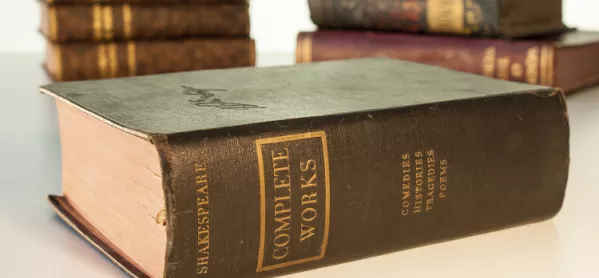With this year’s exam season almost upon us, there’s been a lot of focus on what’s new for the GCSEs. But, just because the grading and content have changed, it doesn’t mean the tried-and-tested ways to prepare no longer work.
Nothing is going to prepare your students for their GCSE English literature exams more effectively than knowing the texts, so taking some time to read them again during revision will be particularly useful.
As they think about each of the texts, they should try to visualise the person “behind” the text - in other words, the writer. A really important skill in this subject is to be able to talk about the ways in which the writer has communicated their ideas to the reader; it didn’t just appear ready-made!
So, as you send your students forth into their exams, here’s the advice I’d leave them with:
Novels/plays
- Don’t lose the plot
Students can remind themselves of the plot by constructing a timeline of events, and noticing how events follow on from each other. Think about which are the most significant, or pivotal, moments in the text. Perhaps pick a few and think about why the writer has included this particular moment: why is it there? What is its purpose?
- Who are the key characters?
You could get students to make a list and create a pen portrait description of each one. As they are doing this, they should think about why the writer included this particular character: what do they add to the story, or to the themes, of the text? What is their purpose?
- Location, location, location
Students could write a list of the settings, or locations, that are used in the text they’re studying. Get them to make a list of all the key locations that are used, and encourage them to understand that the writer selected these locations deliberately and for a reason. For example, is the setting outside or inside? Is it isolated or busy? What is the weather like? What is the time of day?
- Open a page at random
They could try picking up one of their texts and letting it open at a random page, then read the page and see if they can “place” this moment in the plot. What is happening at this moment? Is it significant in any way? What has just happened, and what is going to happen next?
Poetry
- Look at poems under themes
Grouping the poems in different ways could help students to see the thematic connections that can be made between them. They might find that they can make lots of different groups of poems this way, and it will help them to revise the content as well as the themes as a whole.
- Rename poems
To help them get to grips with the overall idea in the poems, they could try giving each one a different title to the one that the poet selected. If they were the poet, what would they have called this poem?
- The bigger picture
Analysing poetry isn’t about trying to say something important about every word, phrase or line! A helpful approach instead is for students to go through each of the poems and pick out three elements that they have the most to say about. A very effective way of doing this is to put the poem in front of them and ask them just to scan it for 10 seconds before covering it up - and make a quick note of the things they remember. This way they see the elements of the poem they’re most interested in and, therefore, the elements that they are likely to have the most to say about.
- ‘Time a lot about a little’
In other words, get them to pick a word, phrase or line and time themselves to see how much they can say about it. If they can write about it for five minutes without stopping, then they’ve made a good choice - but remember to always link to the point of the poem!
Sarah Darragh is an experienced teacher and examiner. She has developed teaching resources for AQA, and she writes with its agreement.
Visit our revision hub and wave goodbye to stress during exam season. It’s packed with tips, tricks and techniques that can help set your students on the path to success.
Want to keep up with the latest education news and opinion? Follow Tes on Twitter and like Tes on Facebook
